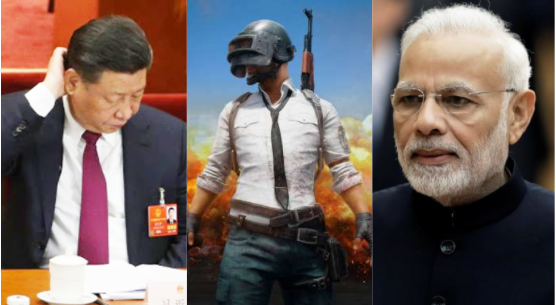India’s plan to corner the red regime of Xi Jinping on the economic front seems to be paying dividends as barely days after banning the hugely popular battle royale game Players Unknown Battlegrounds Mobile (PUBG), the parent company from South Korea, Bluehole has announced that it will be severing its ties from its Chinese tech-giant investor Tencent, which is a partner in operating the game in India.
“In light of recent developments, PUBG Corporation has made the decision to no longer authorize the PUBG MOBILE franchise to Tencent Games in India, Moving forward, PUBG Corporation will take on all publishing responsibilities within the country.” PUBG Corporation said in a statement released on Tuesday.
This essentially means that the original South Korea-based gaming company will be taking over the responsibilities. PUBG Corp further said that it is aware of the whole situation and why it was banned and therefore is actively looking into the entire issue to find a workaround.
Before the ban took effect, PUBG had sensed that its days were limited and as a result had made some last-ditch attempts to salvage its reputation. It had revised its privacy policies and stated that all data PUBG Mobile collected from its Indian players will be stored on local servers within the country. But the revision in policy came a little too late as the Union Government had already made plans to dismantle the app.
PUBG Mobile was developed as a mobile application by Tencent Holdings, which is a Chinese Holding conglomerate. Although the game has taken its essence from PUBG Corp, the mobile version had been both developed and published by Tencent, leading to its ban in India, due to an obvious China link.
Tencent Games also bought a 10 per cent stake in Bluehole, in mid-2018 and therefore it will be interesting to see that if the move by Bluehole to decouple itself from the mobile variant will be enough for the government to overturn the decision or not.
Around the world, there is a growing consensus that China and its ruling Communist regime uses mobile applications distributed across the world as tools for espionage, spying, and data thefts. The world and the USA in specific took a cue from India’s banning of TikTok to pull a similar manoeuvre back in the states. The Donald Trump Administration has given an ultimatum to TikTok to sell its American arm to Microsoft and pack its bags and leave the country.
Now the current situation where PUBG to save its operations in India has sacrificed its Chinese investors will surely serve as another example on how to deal with Chinese espionage tactics.
The companies will now be pressurized to drop their Chinese investors as they inadvertently work for CCP. With an example of PUBG serving as the guiding light, companies will have limited options.
The massive ban on Chinese tech services/apps by India will also result in investors growing apprehensive of putting in their fortunes with Chinese companies, as in the post-COVID world order, no one knows which country might end up taking anti-China decisions. Instead, investors will be looking at putting their money in more stable economies, such as India, who face no negative sentiments globally. This will spell the death knell for the Chinese tech sector.
After the June 15 incident in the Galwan valley near LAC, the Union Government had meticulously chalked out a plan to counter the growing Chinese influence. While the Army plays the long game at the border, the Union government will continue hurting the Chinese investors and companies on the economic front. And because there is simmering tension on the border, New Delhi and its decision of app-banning will be more than vindicated by the global community.
So far the plan has been going with pitch-perfect precision and the World is seeing a masterclass from India on teaching the nincompoops of China a staggering lesson. Add to it the humiliation China has faced in Pangong-Tso in the last few days and you can imagine the red-faced Chinese running from pillar to post, hoping to catch a break.
